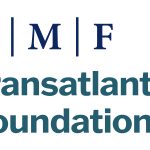Peripheral Futures is a cross-border initiative led by Policy Lab (Slovenia) and Institute for Political Ecology (Croatia). The project promotes EU values, counter disinformation about climate change and green just transition, and strengthens civic participation in rural and peripheral regions.
Why this matters?
In both Slovenia and Croatia, awareness and understanding of EU rights and values remain unevenly distributed. Most civil society organisations (CSOs) are based in Ljubljana or Zagreb, while peripheral and rural-border regions are often left out of national debates and disconnected from EU-level policy conversations.
This geographical imbalance contributes to a profound visibility gap in these regions: the benefits and relevance of EU rights are poorly communicated, easily distorted, and often overshadowed by local power politics dynamics. The result is a growing vulnerability to disinformation—particularly in relation to the green transition and its social impacts.
The challenge
Climate action, energy transition, and environmental regulations are frequently misrepresented in these areas as threats to rural livelihoods, traditional practices, or local autonomy. False or misleading narratives portray EU values as distant, imposed, or elitist—rather than as tools for strengthening democratic participation, environmental protection, and social justice.
This information vacuum is actively exploited by illiberal actors. Entrenched local elites, often in power for decades, can suppress civil society initiatives and fuel distrust in democratic institutions.
The potential
Despite this obstacles, numerous young civic actors in peripheral-rural-border regions between Slovenia and Croatia continue to defend fundamental rights, foster civic engagement by mobilising their communities, and resist disinformation.
But they are under-resourced, under-recognised, and too often disconnected from national and EU support systems.
Focus
The project focuses on the most underrepresented regions — at the geographical and political margins — and supports young people as community multipliers, contributing to grounded, participatory understanding of EU rights and values, countering disinformation about climate and democracy, and reinforcing local democratic infrastructure.
Key activities include:
- Mapping civic actors and disinformation landscapes in Slovenia and Croatia (two national briefs).
- Facilitating peer-to-peer exchanges and knowledge-sharing to analyse local conditions and disinformation patterns.
- Hosting the Peripheral Futures Forum: Cross-Border Synthesis and Strategizing for Democracy in Slovenia, bringing together youth leaders, CSOs, and public officials to create a shared vision for participatory democracy.
- Producing two national reports (Slovenian and Croatian) and an English summary brief for international audiences, with concrete recommendations to CSOs and policymakers on safeguarding EU values.
Impact
Through storytelling and the wide dissemination of project outputs across civic networks, media, and EU platforms, Peripheral Futures will:
- amplify the voices of rural and peripheral communities,
- strengthen local and cross-border resilience against political manipulation and disinformation,
- and position peripheral communities as active shapers of Europe’s democratic future.
#EUfunded #PROTEUS #EUValues
##########################################################
“Co-funded by the European Union. Views and opinions expressed are, however, those of the author(s) only and do not necessarily reflect those of the European Union or the European Education and Culture Executive Agency. Neither the European Union nor the granting authority can be held responsible for them.”










